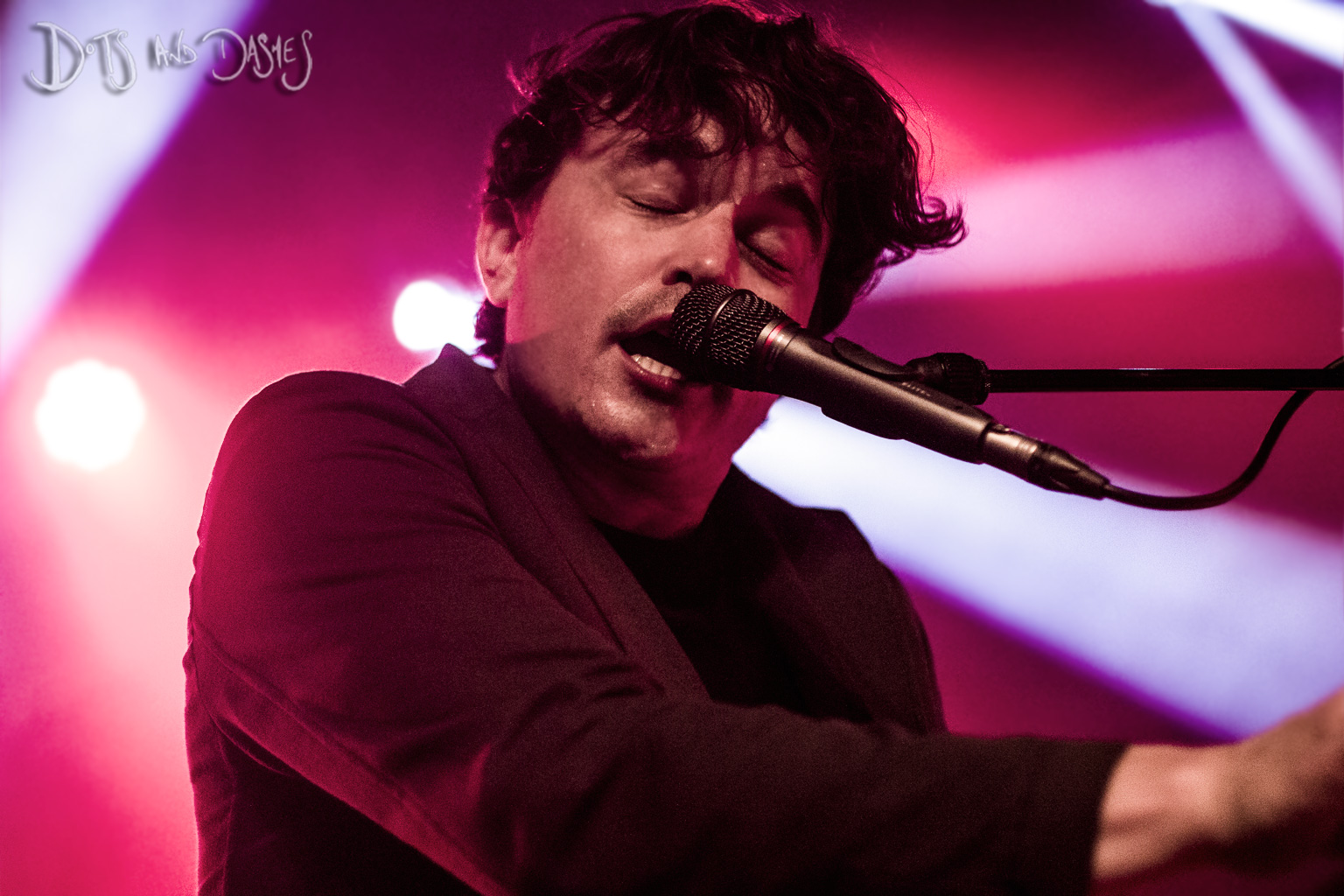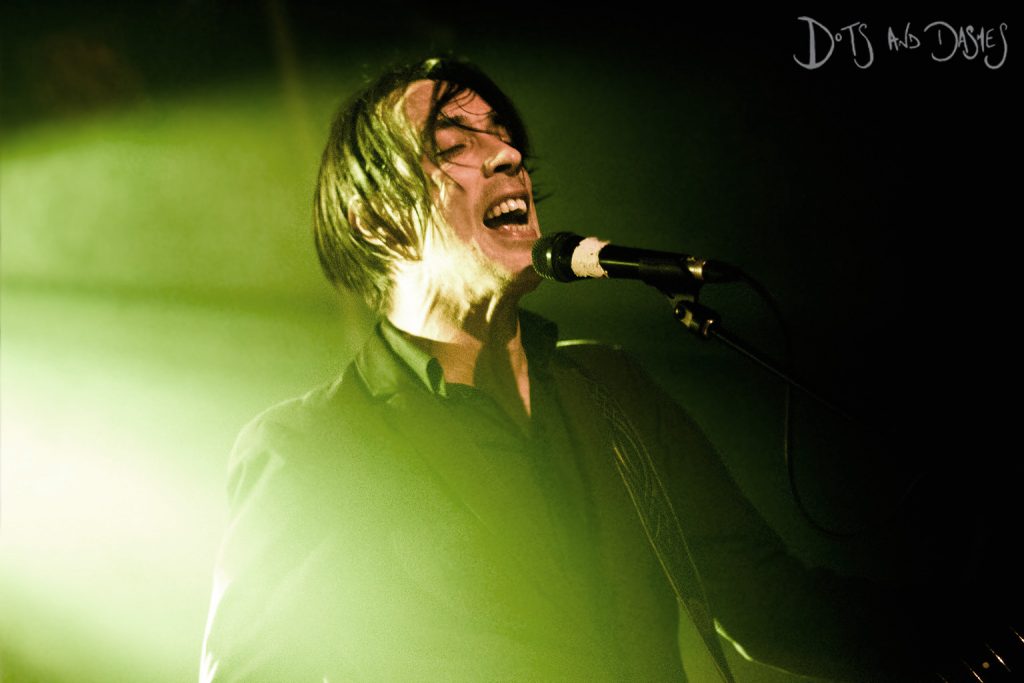The regularity with which so-called ‘cult’ bands cultivate a (for want of a better, or less alliterative word) cultured sound really is rather extraordinary. There is, and presumably always will be, a totally natural attraction to challenge and, by extension, the intrinsically esoteric, of course; it explains how and why the immediately apparent impenetrabilities of, for instance, exclusively instrumental North American post-rock can, with due perseverance, dissolve to reveal a latent, if still overtly melodious accessibility to engender – in many an instance, on many an occasion – a lasting obsession. But for one reason or another, in comparatively recent times, Canada – or, to be that bit more specific, Québec – has institutionalised an again, extraordinary number of ‘cult’ bands; or at least it did throughout the oughties, or a decade that can now be quite cogently referred to as ‘the golden age of Pitchfork’…
At the angular vanguard of these aureate developments musical were, I would argue, two British Columbian men: Nicholas Thorburn, of The Unicorns and, subsequently, Islands, and Spencer Krug. And while the latter has seemingly formed or featured in as many ‘cult’ assemblies as the rest of the North American continent combined, including Frog Eyes, solo project Moonface, and the reprehensibly underrated Sunset Rubdown and Swan Lake, it’s Wolf Parade (formed in 2003, in Québec) for which he will – to my mind, at least – always be best remembered. Their début album, Apologies to the Queen Mary, was and remains a masterpiece; one worthy of a 9.2, no less. And from it, Dinner Bells resonates on so deeply profound a level, that I pray it’s played at my interment.
But tonight is no time for funereal thoughts; instead, it’s better seen as a celebration of the past – of Apologies to the Queen Mary, and plenty more besides – and at times, the future too. Because material taken from last month’s (if their fourth) eponymous EP, such as C’est La Vie Way and Floating World, don’t simply slip seamlessly into proceedings, but so too prove vital sutures holding the show together. And, combined in a kind of medley, together, they readily demonstrate the absolute synergy in which Krug and Dan Boeckner have shared for decades already.
They’re tracks that are met – as is more or less their every move – by faintly lupine hooting and howling, and they conceivably eclipse much of the stuff from 2010 full-length Expo 86, in truth: the swashbuckling Cloud Shadow On the Mountain, for one, lacks the true intricacy of the aforementioned début, while What Did My Lover Say? (It Always Had to Go This Way) is to Modest Mouse what the lowly lab rat is the murine genus. From interim record At Mount Zoomer, Boeckner’s Soldier’s Grin nicely intermingles the crooked kook of Beck, Yeasayer, et cetera (and thus essentially assumes a more mainstream timbre), while Krug’s synthesised keys sprinkle idiosyncrasy on the otherwise unremarkable Fine Young Cannibals. But, with the inglorious benefit of hindsight at our disposal today, we can now see that there may have been a paucity of idea and ingenuity plaguing Wolf Parade around the time of these particular releases…

And these numbers are, perhaps rather perfunctorily, disposed thereof relatively early on tonight, with “old song[s they] thought were dead” thus resuscitated and tremendously central. From the lolloping, unprecedented singalong that is Dear Sons and Daughters of Hungry Ghosts, to the frenzied I’ll Believe In Anything, that’s haywire as a National Grid of frayed wires, to the softly phosphorescent, seemingly Grandaddy-sired This Heart’s On Fire, they’re due gratitude for so unapologetically dipping into so much of the début. So when Krug pronounces these two one-off London dates as “the best shows [they’ve] ever played in the UK,” it’s pretty much impossible to disagree.
Digressing slightly though, fault can be grudgingly found in a slight lack of performance during the songs themselves, with little of their breathless melodrama lyrical translating to action onstage. There are, in short (and aside from during the duelling harmonic guitar solo nestled inside California Dreaming), few histrionics on show. But, as one of the most indispensable indie bands of a ‘golden age’, this isn’t strictly relevant; and is compensated for by largely humorous badinage – concerning the sacrificial incineration of Krug’s occasionally recalcitrant keyboard outside neighbouring Kings Cross, etc. – as and when(ever) the rapture subdues, anyway. What is most relevant, however, is that Wolf Parade are back; and they’re both thanked, and thankful for that fact.
Because reformed bands rarely look so visibly rejuvenated, nor sound quite so rejuvenating. “I can safely say we’re having more fun than the first time round,” Krug confirms, with this corroborated by the grin that refuses to vacate Boeckner’s face throughout. They have therefore not only reunited, but seem very much united, too; a refreshingly far cry from those who, vocally or otherwise, reconvene for reasons solely financial. But such is the emotional heft innately linked to the heftily intelligent likes of Grounds for Divorce and Modern World, that they would never have gotten away with getting back into the swing o’ things simply ‘for the money’. And ultimately, in self-proclaimed “deep cut” Dinner Bells, an entire – and, on the evidence of this evening, entirely overlong – five-year hiatus is all but forgiven in an instant. For that immensely, if not ineffably magical moment at which it materialises, taking its eventual shape from two alternating, undulating notes, is totally unforgettable; and doesn’t so much make the night, as this year thus far. Best to not so much blame, as bless Canada all over again, then…
